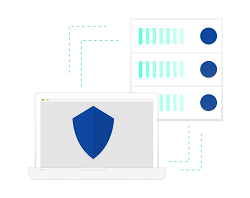A cloud engineer is an IT professional responsible for any technological duties associated with cloud computing, including design, planning, management, maintenance and support. The cloud engineer position can be broken into multiple roles, including cloud architect, cloud software engineer, cloud security engineer, cloud systems engineer and cloud network engineer. Each position focuses on a specific type of cloud computing, rather than the technology as a whole.
Major types of Cloud Engineeer
Solution Architect
Solution Architects are the individuals who will be involved in designing the infrastructure and applications. Therefore, they must possess advanced technical skills and experience in designing distributed applications and systems on the Cloud platform. Simply speaking, they are responsible for creating blueprints of application designs.

-
addSkills Required
If you are thinking of becoming a Cloud Architect you will ideally already have a strong background in a similar technical area.
- Good knowledge of at least one operating system: Linux, Unix, Solaris, Ubuntu, Windows. Preference is any LINUX flavored operating system.
- Good understanding of networking: TCP/IP, IP addresses, HTTP, DNS.
- Computer Programming Languages: It is required to atleast have a minimal understanding of a programming or scripting language.
- Security: Security in the cloud is important, and consequently, a high-level understanding of key security concepts is a must for a Cloud Architect.
addRole and Responsibilites- Designing and deploying dynamically scalable, available, fault-tolerant, and reliable applications on the Cloud.
- Selecting appropriate Cloud services to design and deploy an application based on given requirements.
- Migrating complex, multi-tier applications on Cloud Platforms.
- Designing and deploying enterprise-wide scalable operations on Cloud Platforms.
- Implementing cost-control strategies.
Helpful Certifications AWS Certified Cloud Practitioner AWS Technical Essentials GCP Cloud Infrastructure Architecting on AWS
System Operations Engineer
System Operations Engineers are individuals are system administrators who take over once the application is designed and developed. They are responsible for managing and monitoring most of the activities that follow the process of development.

-
addSkills Required
- Relevant experience as a systems administrator in a systems operations role.
- Ability to work with virtualization technology.
- Experience in monitoring and auditing systems.
- Knowledge of networking concepts. (e.g., DNS, TCP/IP, and firewalls)
- Ability to translate architectural requirements.
- Ability to deploy, manage, and operate scalable, highly available, and fault-tolerant systems.
- Knowhow to implement and control the flow of data, to and from a service provider.
-
addRole and Responsibilites
- Design and develop systems and processes that support highly available, scalable, fault-tolerant software deployments.
- Build and maintain the environments and processes that create efficiencies for developers.
- Automate provisioning of infrastructure and code by leveraging the latest in configuration management tools and containers.
- Partner with Security Engineering to ensure security and compliance across enterprise environments.
- Design, develop, and deploy tools and frameworks to improve and automate software releases.
Helpful Certifications AWS Certified Cloud Practitioner AWS Technical Essentials GCP Cloud Infrastructure Architecting on AWS
Cloud Developer
It is pretty clear from the title that these individuals are responsible for coding and development of applications. They are expected to have knowledge of the best practices related to Cloud architecture. Cloud Developers are also involved in developing, deploying, and debugging cloud-based applications.

-
addSkills Required
- Expertise in at least one high-level programming language.
- Skills for developing, deploying & debugging cloud applications.
- Skills in API usage, command line interface and SDKs for writing applications.
- Knowledge of key features of Cloud Service Providers.
- Understanding of application lifecycle management.
- Ability to use continuous integration and distribution pipelines to deploy applications.
- Ability to code to implement essential security measures.
- Skills in writing, correcting and debugging code modules.
- Code writing skills for serverless applications.
- Understanding in the use of containers in development processes.
-
addRole and Responsibilites
- Designing and deploying dynamically scalable, available, fault-tolerant, and reliable applications on the Cloud.
- Cloud Developers are involved in developing, deploying, and debugging cloud-based applications.
Helpful Certifications AWS Certified Cloud Practitioner AWS Technical Essentials GCP Application Development Developing on AWS
Check details of all certifications avilable for above mentioned Learning Paths on Certifications Page
